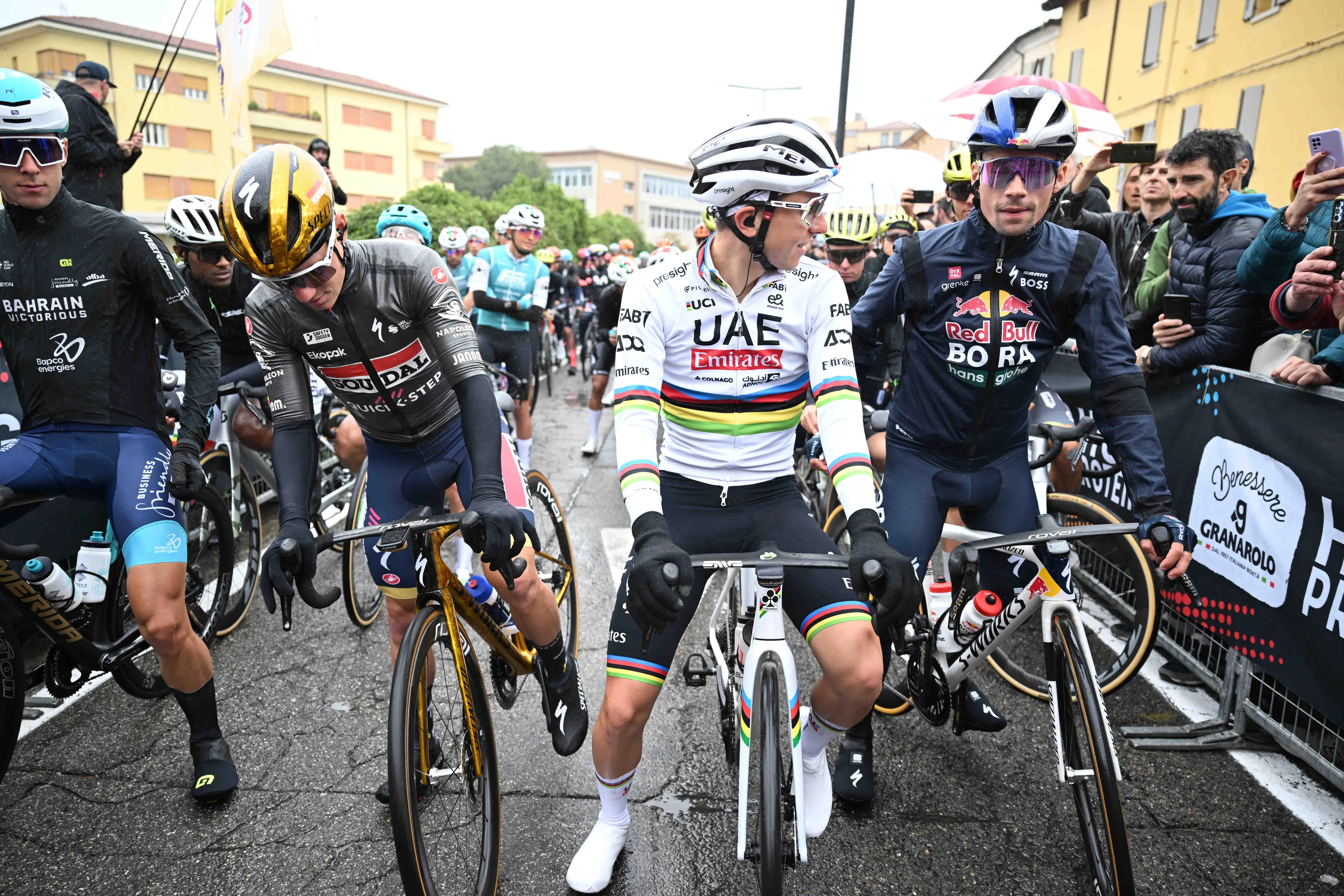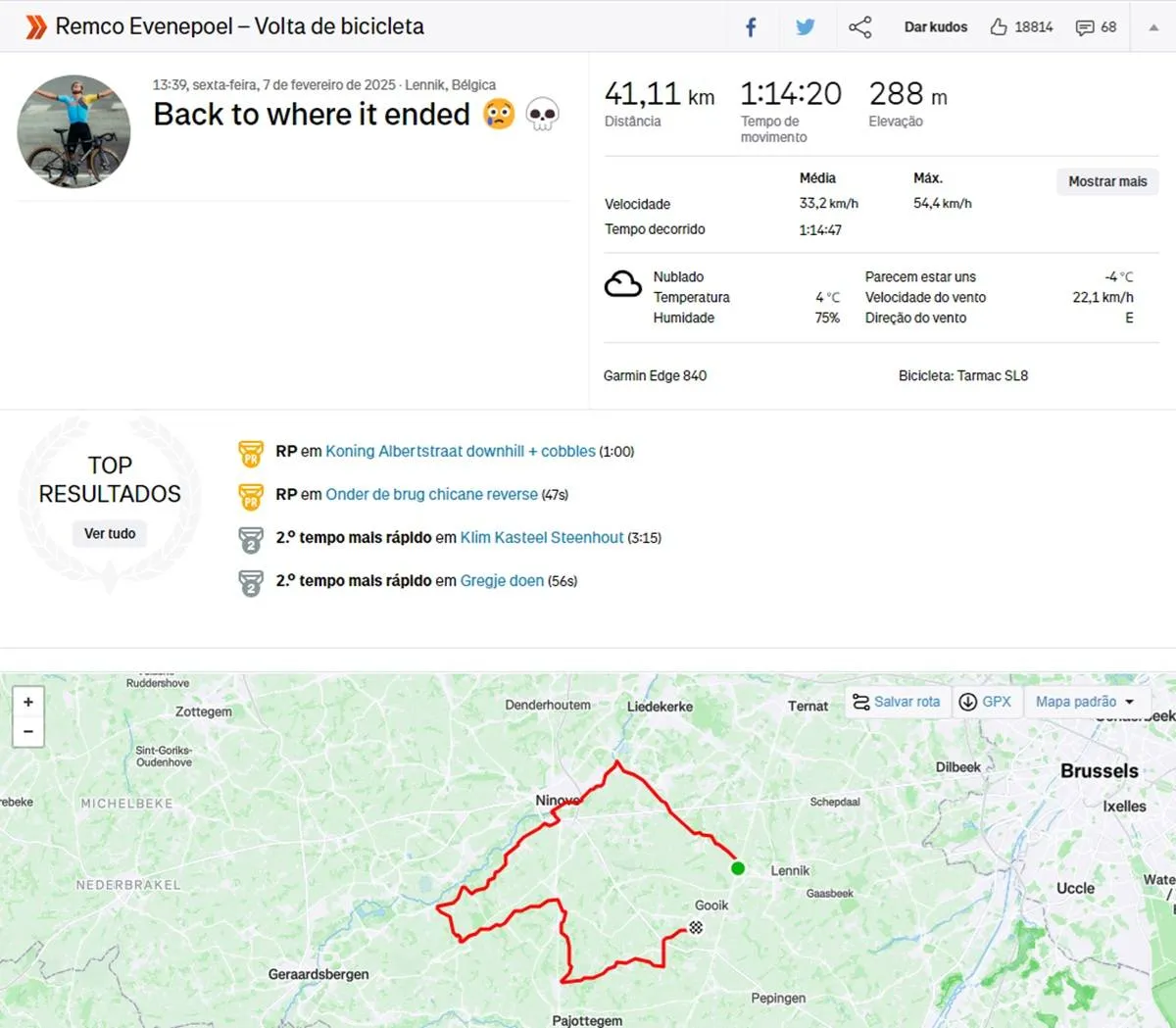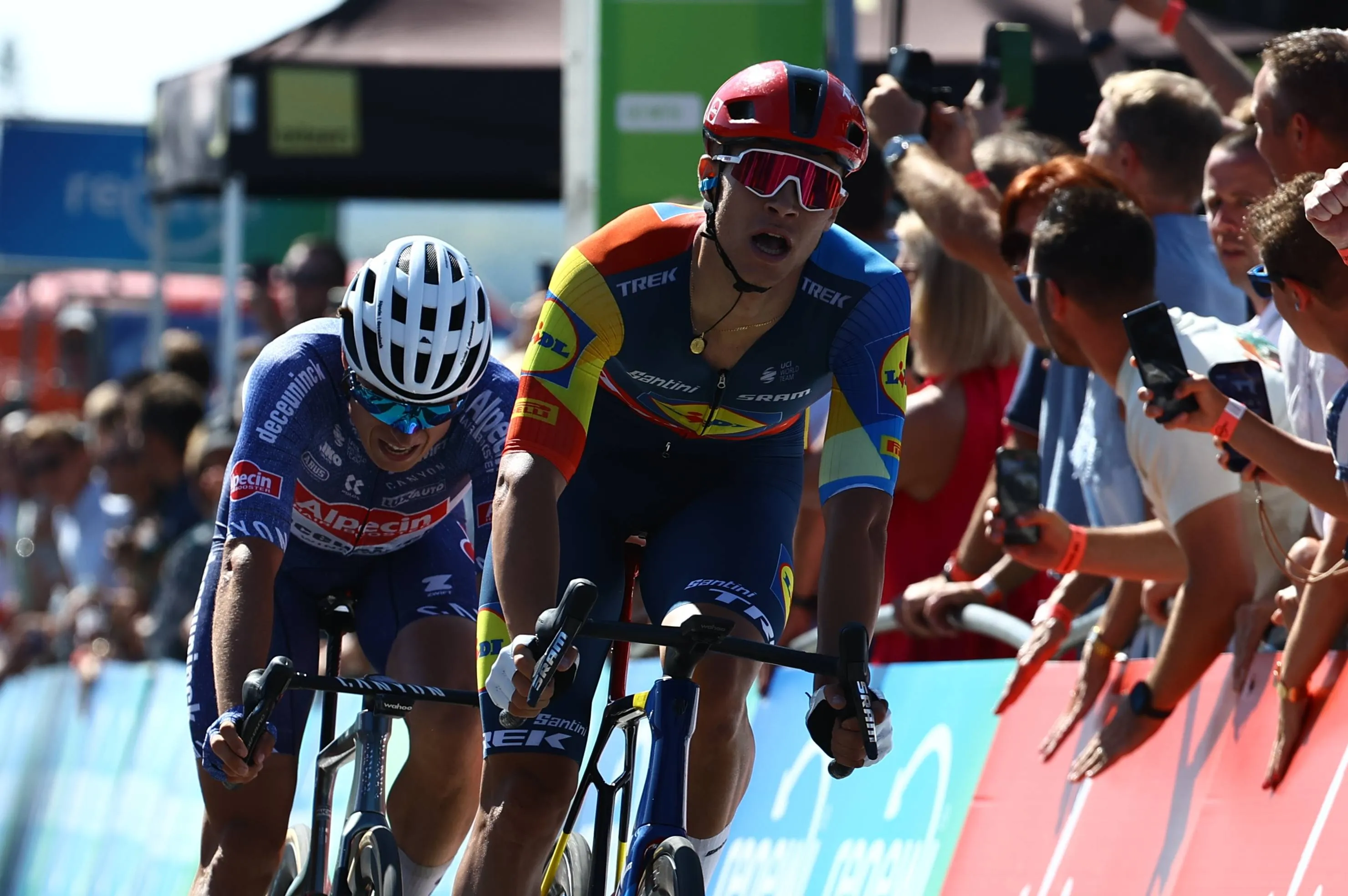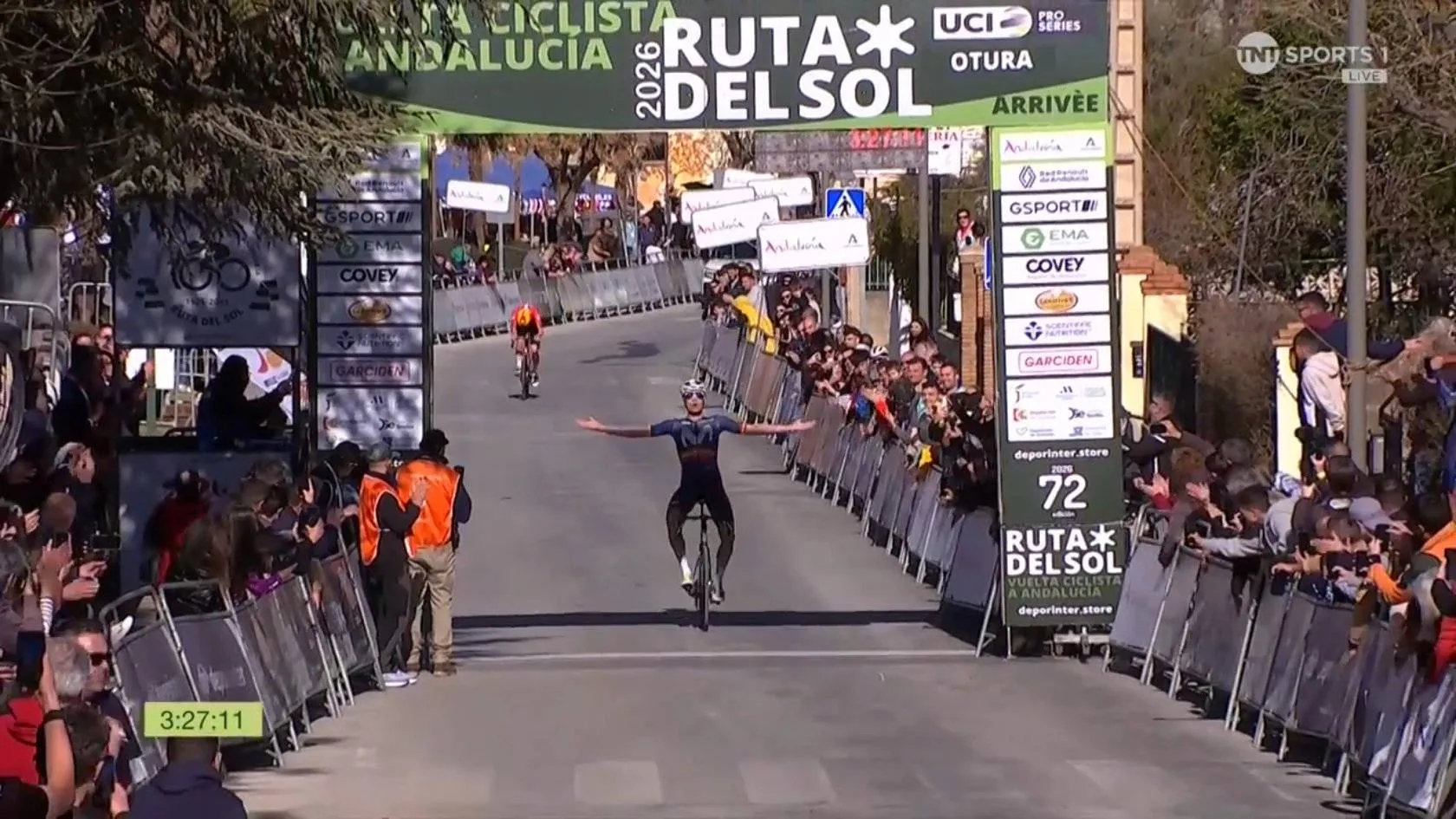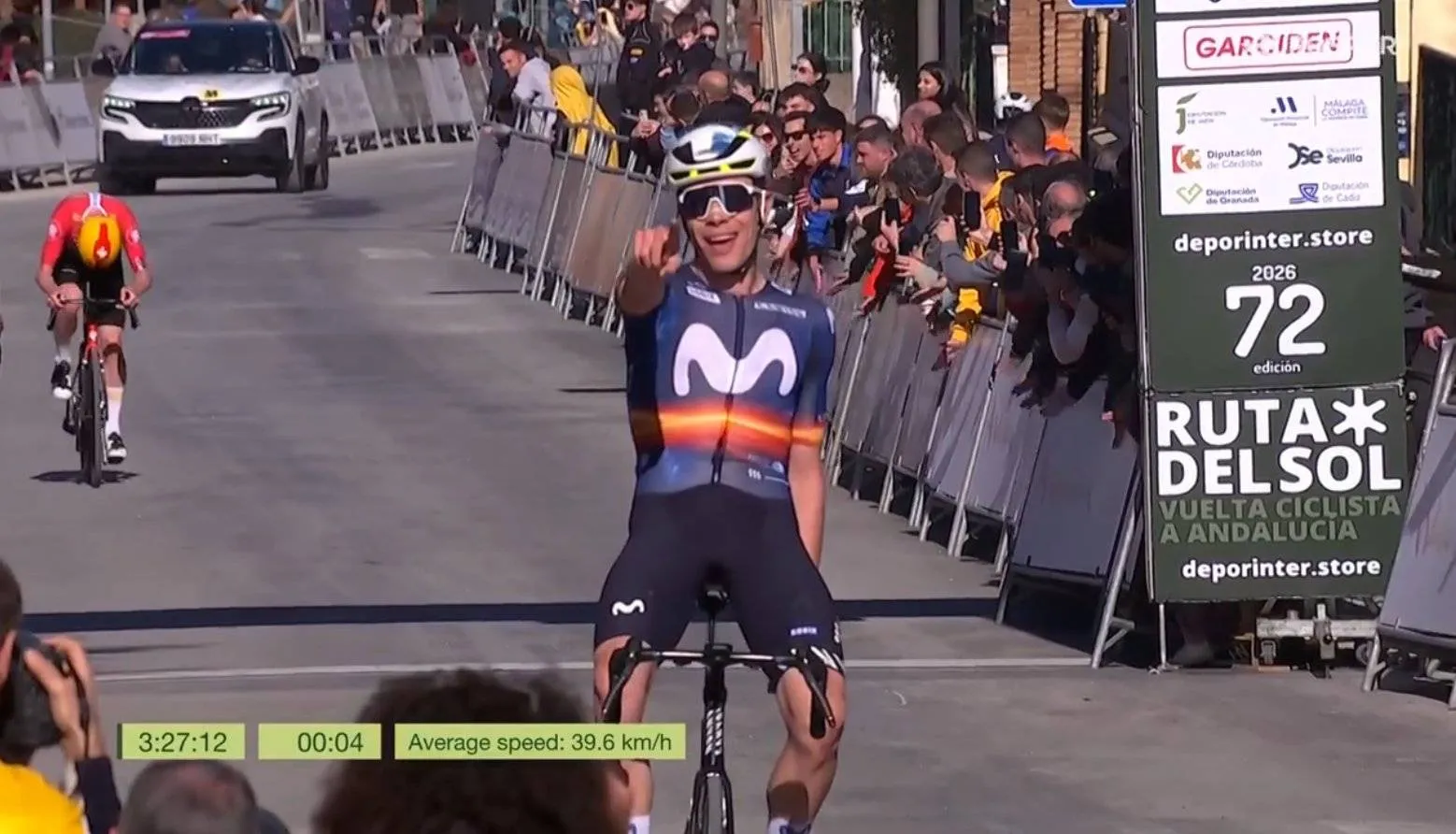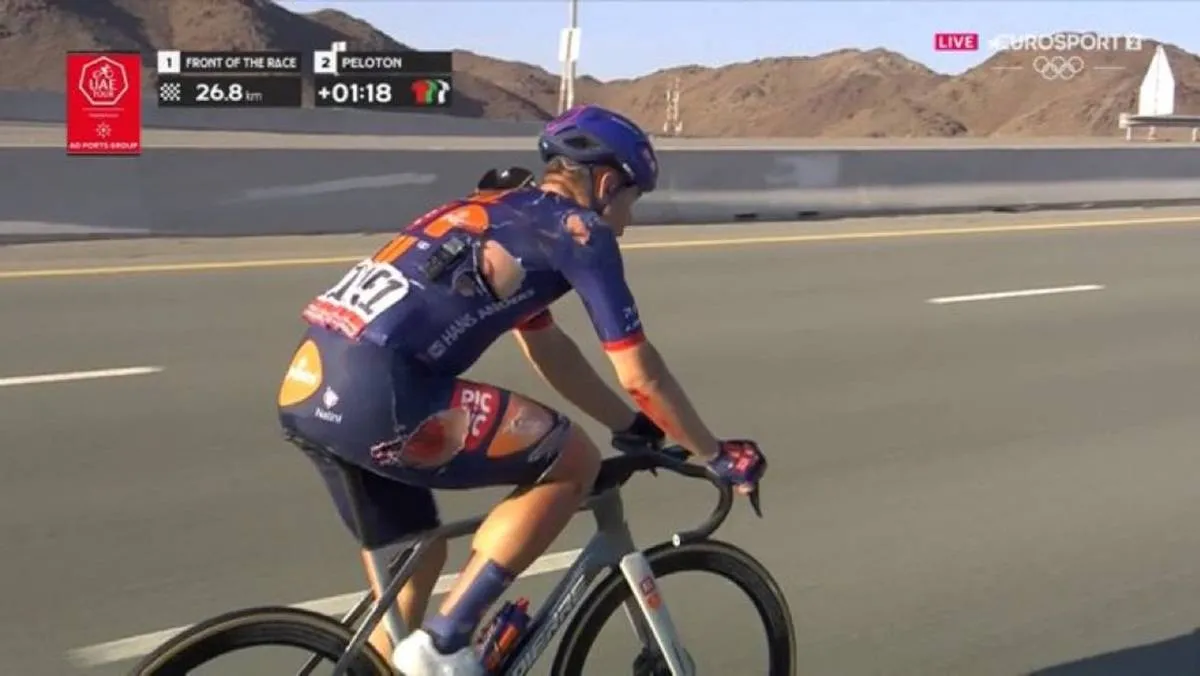Tom Pidcock and Julian Alaphilippe listen up! Will the Giro d'Italia and the Vuelta a Espana have an extra wildcard slot in 2025?
CyclingTuesday, 11 February 2025 at 10:20
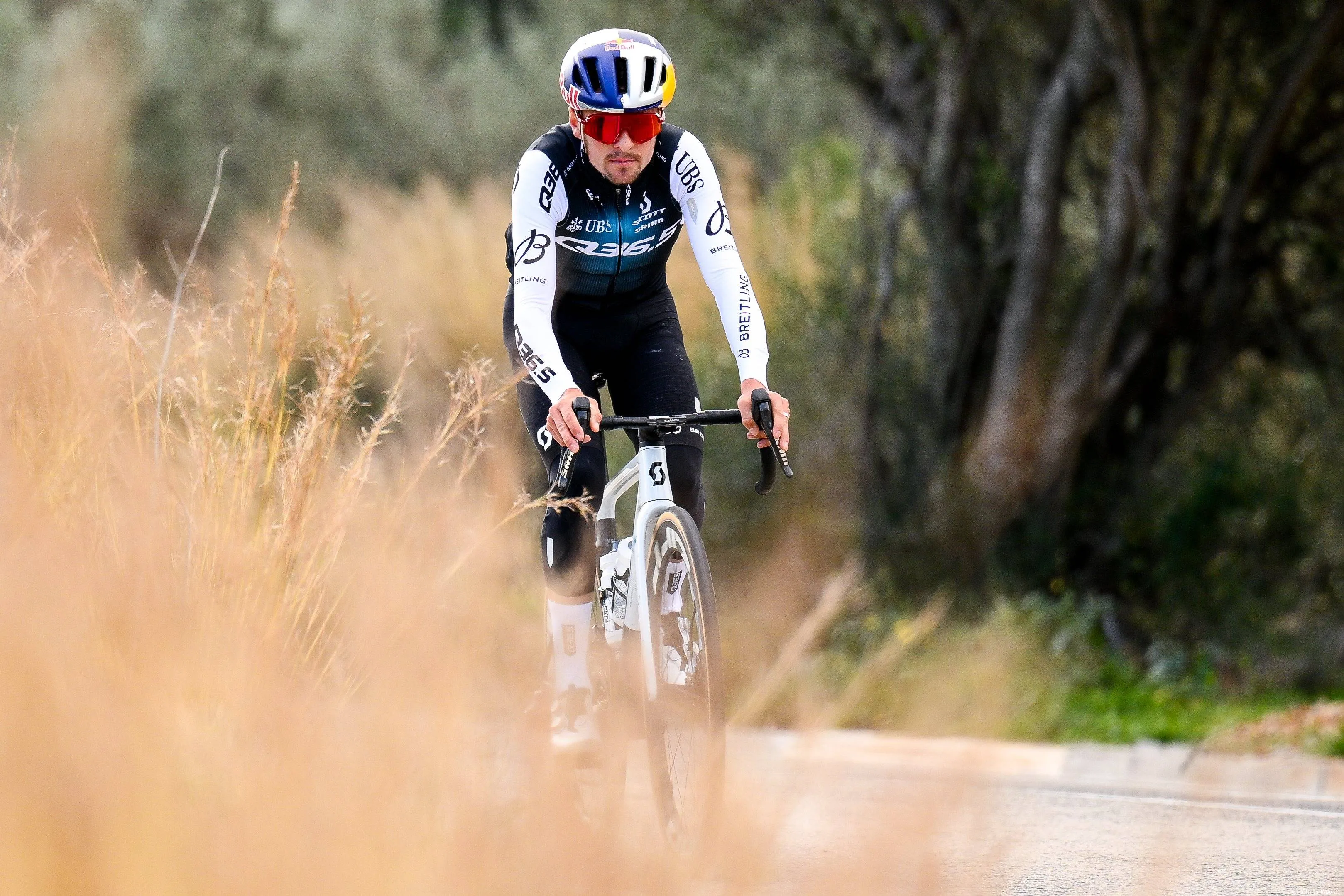
In professional cycling, Grand Tours such as the Giro
d'Italia and the Vuelta a Espana represent the pinnacle of stage racing,
attracting elite teams, riders, and sponsor from around the globe. Traditionally,
the peloton comprises 18 UCI WorldTeams, which are granted automatic entry due
to their top-tier status. In addition to these, organizers have the discretion
to invite a select number of UCI ProTeams through wildcard entries. These
wildcards are coveted opportunities for ProTeams to compete on cycling's
grandest stages, offering them exposure, experience, and the chance to showcase
their talents against the world's best.
The decision of which teams are given wildcards, can therefore
be absolutely crucial.
Read also
According to Cyclingnews, in recent days both RCS Sport, the
organizer of the Giro d'Italia, and Unipublic, which manages the Vuelta a Espana
have petitioned the UCI for an additional wildcard slot for their 2025 editions
of their respective grand tours. If approved, this would increase the number of
participating teams in each race to 23. The primary motivation behind this
request is to accommodate the growing number of ProTeams vying for a place in
these Grand Tours. By securing an extra slot, organisers aim to include more
deserving teams, therefore enhancing the competitive landscape of the races.
The role of wildcards in Grand Tours cannot be overstated.
For ProTeams, receiving a wildcard is a significant achievement, providing them
with a platform to compete at the highest level, and draw more sponsors to
their team. It also offers riders invaluable experience and exposure, which can
be instrumental in securing future sponsorships and elevating the team's
profile. For race organisers, wildcards allow the inclusion of teams that can
animate the race, engage local fan bases, and uphold national interests. Just
thin back to last years Vuelta, when Equipo Kern Pharma won 3 races as a
wildcard team.
Read also
However, the allocation of wildcards is a complex process
influenced by various factors, including team performance, nationality,
sponsorship considerations, and strategic interests of the organisers. The
limited number of available wildcards makes the selection process highly
competitive, often leading to difficult decisions and, at times, controversy.
The current standard permits organisers to invite up to four ProTeams, but two
of these invitations are automatically extended to the top-ranked ProTeams from
the previous season, as per UCI regulations. This system leaves organisers with
only two discretionary wildcards, intensifying the competition among the
remaining ProTeams. But who will be selected in 2025?
The request for an additional wildcard by the Giro and
Vuelta organisers reflects the increasing depth and quality of ProTeams, with a
number of high profile riders leaving WorldTour teams throughout the winter.
Teams such as Tudor Pro Cycling, bolstered by riders like Julian Alaphilippe
and Marc Hirschi, and Q36.5 Pro Cycling Team, strengthened by none other than
double Olympic champion Tom Pidcock. Of course, without the wildcards, riders
like Pidcock and Alaphilippe could be forced to race 2025 outside of the sport’s
most important events.
Read also
However, expanding the wildcard to include an extra team
raises concerns, particularly regarding safety. A larger peloton can lead to
increased congestion on narrow roads, elevating the risk of accidents,
something cycling already is having huge issues with. Moreover, logistical
challenges such as accommodation, transportation, and race support become more
complex with additional teams, and the UCI has historically been cautious about
increasing peloton sizes due to these concerns. In previous instances, while
exceptions have been made to allow extra wildcards, the governing body has
emphasised the importance of maintaining manageable peloton sizes to ensure
rider safety and race integrity.
The decision to grant an additional wildcard also carries
huge financial implications. Each additional team adds to the organisational
costs, including accommodations, security, and support services, and that’s
just naming a few. Organisers must find a way to balance what’s possible, with
their desire to have all the big names at the big races.
Read also
The request by the Giro d'Italia and Vuelta a Espana
organizers for an extra wildcard in 2025 could certainly enhance the
competition and provide valuable opportunities for emerging squads, but it is
imperative to balance these benefits against safety considerations and
logistical constraints. The UCI's decision will need to carefully consider all
these factors to uphold the integrity and safety of the sport.
claps 0visitors 0
Just in
Popular news
Latest comments
- Minor flaws.... thats like suggesting Genghis Khan was a bit aggressive with other countriesslappers6619-02-2026
- Then you carry on if that's what makes you happyslappers6619-02-2026
- Fabio cannot catch a break.mij19-02-2026
- OK, today is the "air conditioner"... yesterday was a cramp... on saturday a bee will sting him in his tongue... his tongue will swell up and mustafa gets no oxygen. Because of his swollen tongue, Remco won't be able to give us a new excuse. Remco and the spanish rat Ayuso should be on the same team. They both have a ton of excuses and both of them are liars. Ad acta.Mou-Cro-HR19-02-2026
- Florian Lipowitz is secretly happy
 Rafionain-Glas19-02-2026
Rafionain-Glas19-02-2026 - The crucial thing to remember is that Remco was broken by the pace of Gall and Tiberi, not Del Toro's. Remco's excessive antics are because he doesn't want anyone to think that he's 'genuinely' struggling. You can always say 'he got cramps' because 'his preparation didn't go to plan', but the thing is that there is a limit to the number of excuses and exceptions that there can be. Eventually everyone just accepts that he's reached his ceiling on the climbs.
 Rafionain-Glas19-02-2026
Rafionain-Glas19-02-2026 - Bahraini suspicious..Santiago19-02-2026
- The problem is, a British 'boss' opening the gates, when the native workers not wanting them!
 leedorney19-02-2026
leedorney19-02-2026 - Who is overrating him on climbs? Everyone knows since ages it’s his weakness and needed years of work. Question us if he can do enough about it. For sure he won’t be able to improve his TT enough to compensate.Mistermaumau19-02-2026
- What do you call only seeing someone’s positives?Mistermaumau19-02-2026
Loading
Write a comment
